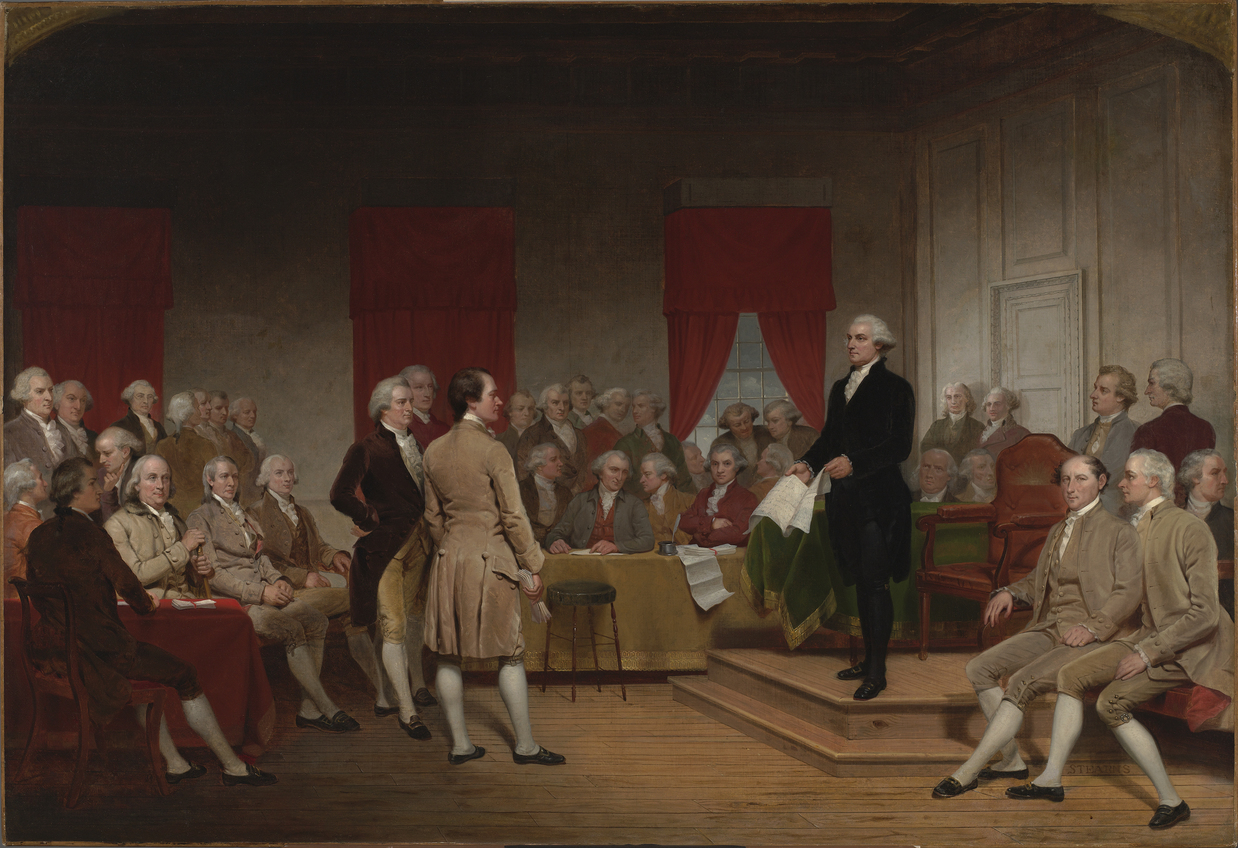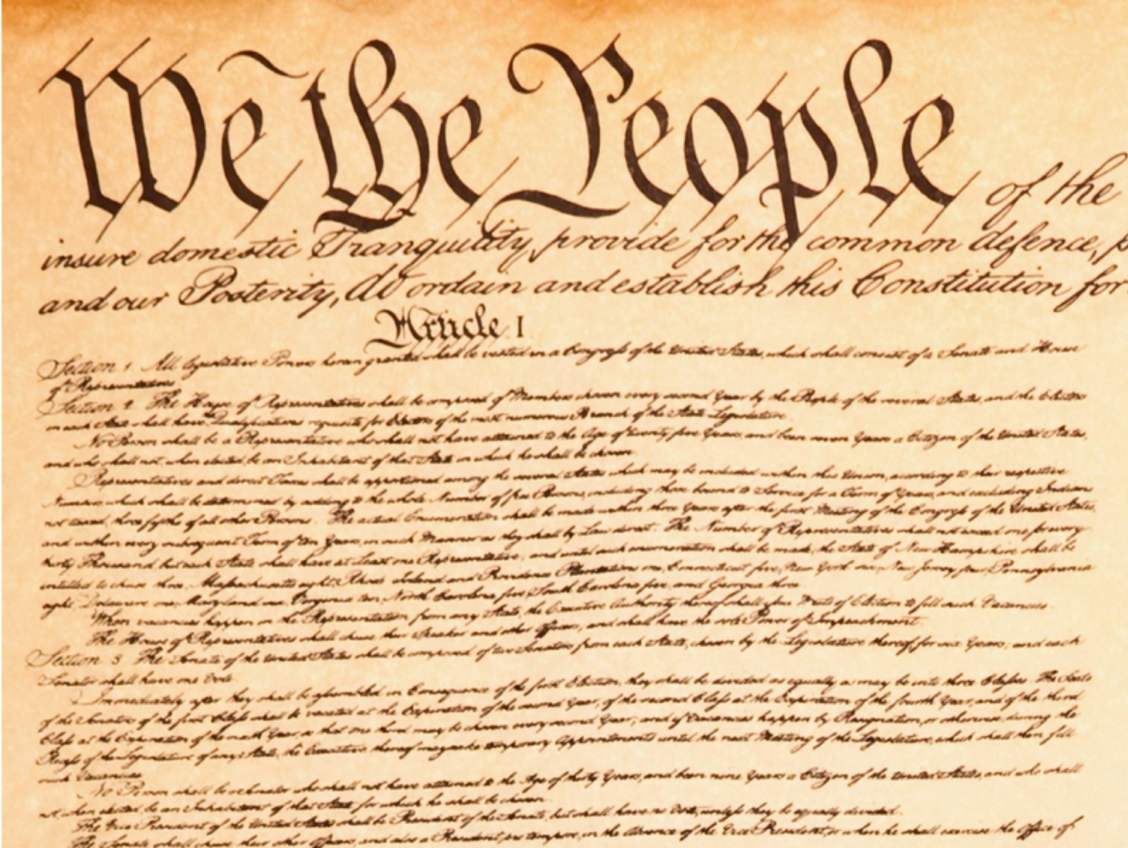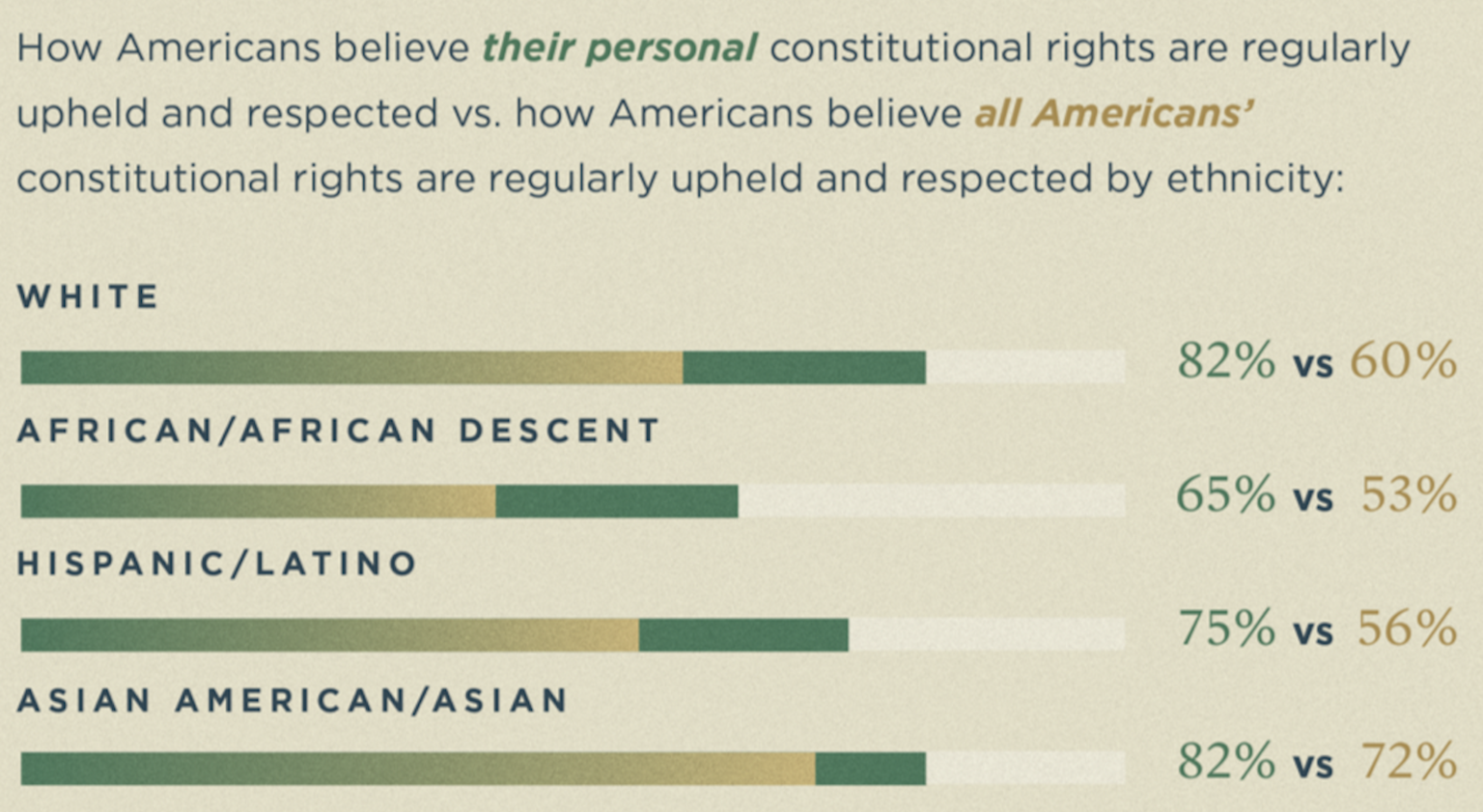As featured on The Hill
We, the People
231 years later, what does it actually mean?
Decades ago, Schoolhouse Rock made it easy for an entire generation to memorize the preamble to the Constitution - that famous refrain that begins with “We the people. . .” Years later, amidst intensifying 25th amendment discussions, and constant questions about the extent of freedoms and liberties, many of us are pondering our relationships with the Constitution and its relevance to our lives and our country.
Schoolhouse Rock! The Preamble
We can’t turn on the TV, read the news, or scroll through our social media feeds without coming across a hotly-contested Constitutional issue. No matter how you identify politically, where you work, live, or play, we are all participants in an ongoing democratic experiment, the one framed and set in motion by James Madison and his contemporaries 231 years ago.

Virginia Museum of Fine Arts, Richmond. Gift of Edgar William and Bernice Chrysler Garbisch. Photo: Katherine Wetzel © Virginia Museum of Fine Arts
Madison told us that “knowledge will forever govern ignorance; and a people who mean to be their own governors must arm themselves with the power which knowledge gives.” This radical idea of “government by the people” is as relevant today as it’s ever been, and it is our responsibility as Americans to be engaged actors in learning about, and living out, arguably the most important, and flawed, western document of the last 1,000 years.
We, therefore, find ourselves ruminating on a fundamental question, “Is there a gap between how groups of Americans view the Constitution’s relevance, usefulness, and dependability? If so, is it as wide as we think it is?”
The answer to both questions, uncovered by our recent national constitutional survey, is “yes.”

The United States Constitution. Wikicommons
The results quantify and ground what many of us understand at a gut level: ethnicity, gender, and socio-economic status strongly influence perceived stability of constitutional rights and protections. Sixty-five percent of Americans believe that ethnic minorities and women do not always experience the constitutional rights they are entitled to. Moreover, 82 percent of white people say that their rights are upheld regularly, compared to 65 percent of African Americans, while less than 13 percent of Americans strongly believe that all Americans’ rights are regularly upheld and respected.
Further, 90 percent of Americans with incomes exceeding $150,000 believe their constitutional rights are upheld regularly, compared to 66 percent of those with incomes under $25,000. These results paint a clear picture of where we are as a nation. How Americans experience the dispensation of justice and security of their rights, still isn’t the same for everyone.

National Survey Results, James Madison's Montpelier
But it can be. And it should be.
The survey also indicates a genuine interest in the Constitution with 86 percent of people saying they are interested in learning more. It’s imperative that we as Americans embrace the fact that the Constitution isn’t only for our scholars and politicians. It’s our universal user’s manual, truly for us, by us.
It’s important for mission-driven organizations to lead the conversation around timely and complex social issues, beyond what’s in the polls or in the news. This can be done through exhibitions, programming, and shifting our educational curriculum so that we take a longer view of American history and engage the public about our founding document and fundamental rights.
Government for and by the people was a radical idea in Madison’s time and remains so today. But it is one of our best ideas and our common ground as Americans as equal actors in this ongoing democratic experiment. The survey, and use of its results as an actionable teaching tool, are first steps in closing the gap to ensure that all Americans feel, and in reality are, protected by, and treated equally under, the Constitution.
Kat Imhoff is the former President & CEO (2013-2019) of James Madison’s Montpelier.